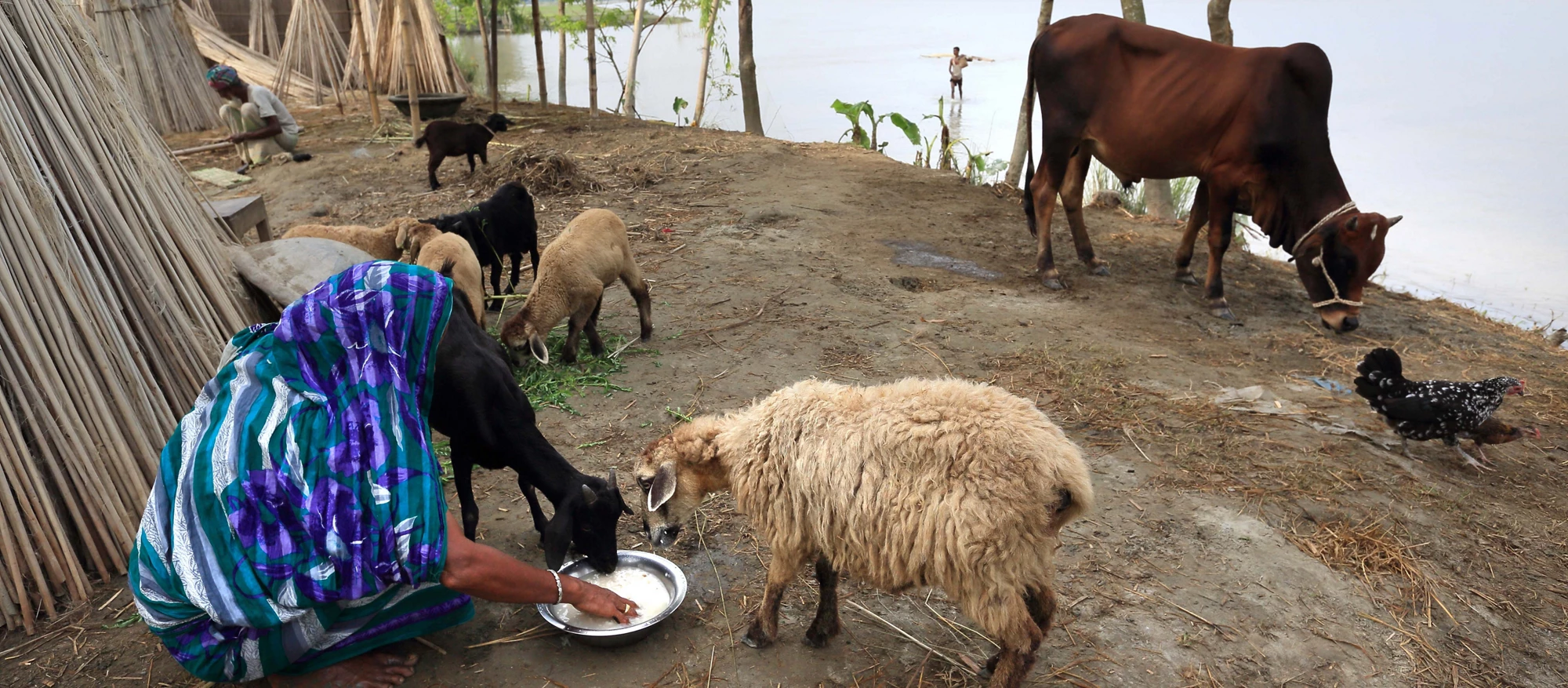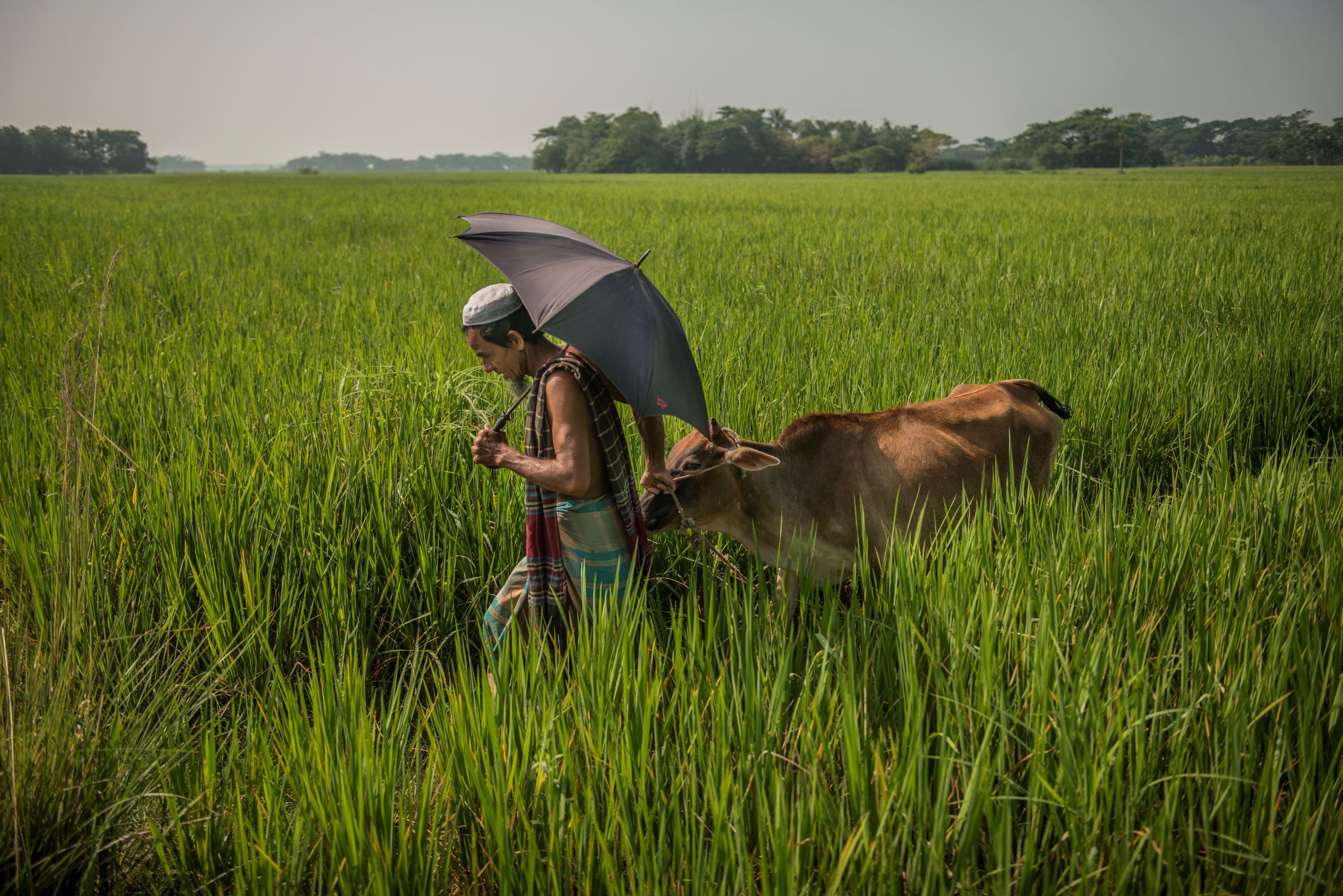 Emergency relief for Bangladesh’s pandemic-hit livestock sector
Emergency relief for Bangladesh’s pandemic-hit livestock sector
COVID-19 hit Bangladesh’s agriculture sector hard. Production and marketing of eggs, poultry meat and dairy have been particularly affected. Dairy farmers and processors lost nearly $470 million since mid-March as they could not market milk during the countrywide shut down. An estimated nationwide study found that 50 per cent milk remained unsold, and that the rest was sold at reduced prices.
Consumers also suffered: in a survey 75 percent respondents reported that they had insufficient access to food; 91 percent did not have enough money to buy food; and 70 percent said they couldn’t provide a wholesome diet to children between 6 and 23 months.
Risks and unprecedented uncertainties
The long-term impact of COVID-19 will extend to every sphere of society including food security and nutrition. Livestock accounts for 1.7 percent of the Bangladesh’s GDP but employs 14 percent of the country’s labor force and accounts one‐third of total agricultural employment. Most rural households are engaged in livestock production, with nearly six million people – 40 percent women –employed directly or indirectly in the poultry sector.
Small-scale farmers are most vulnerable to the impacts of COVID-19 as they might be hindered from working on their land or accessing markets to sell their produce. COVID-19 might force farmers to abandon production or reduce herd size, at the same time that the Government of Bangladesh wants to foster enhanced, climate-smart livestock production to meet the country’s needs for animal protein. In fact, the Livestock and Dairy Development Project (LDDP) came about to increase the availability of animal protein.
The Bangladesh Ministry of Fisheries and Livestock and the World Bank are activating a $96 million emergency response through LDDP to protect livelihoods of the most vulnerable families that operate in the livestock sector. The emergency funds will finance disaster relief and post-disaster emergency recovery expenditures.
This is the first time that Bangladesh has activated emergency funding through an already existing credit. This type of funding is known as a Contingency Emergency Response Component (CERC).
What will the emergency funding support?
- Mass media communication to highlight the importance of milk, eggs, and meat for building immunity and consumer confidence that livestock products do not transmit the virus.
- Cash transfer schemes to support business continuation for vulnerable poultry and dairy producers. In total, 200,000 poultry farmers and 420,000 dairy farmers in 61 districts of Bangladesh will receive financial support, with at least 25 percent being disbursed to women.
- Distributing milk cream separators for longer shelf life and helping farmers to stay in business.
- Providing cooling devices for medicinal storage along with Mobile Veterinary Clinics (MVCs).
- Van rentals to market milk and eggs for communities, and
- Providing Personal Protective Equipment (PPE).
There will be many challenges, including how to identify the vulnerable farmers and how quickly the funds can get to them. Special monitoring and evaluation systems are in place for this emergency plan. The CERC will help the livestock sector survive COVID-19 and bounce back better.
In the short run, the funds will help smallholder farmers safeguard their assets and activities and stay in business. In the mid- to long run, LDDP will further embrace WHO’s One Health principles to reduce the emergence and spread of zoonotic diseases. It will prioritize activities such as the modernization of wet markets to improve food safety, the eradication of major animal diseases; the building of modern slaughterhouses and the expansion of a cold chain for milk, eggs and meat. This will allow healthy income growth for producers and better nutrition for consumers.
At a time when the government is investing so much in animal production, the COVID-19 crisis brought hardship for the livestock sector in Bangladesh, but it has also brought new opportunities for the transformation of Bangladesh’s food system.




Join the Conversation